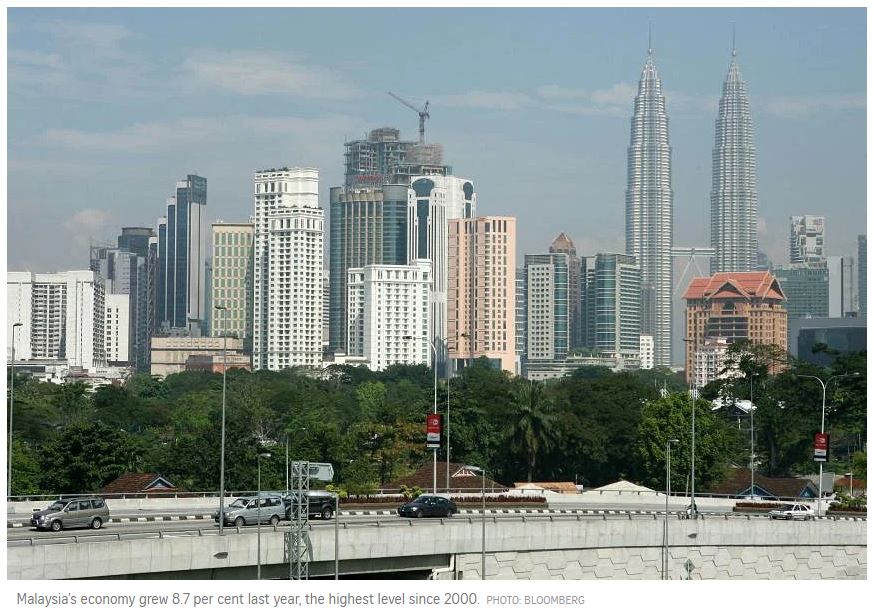Malaysia posts highest growth in decades but global slowdown clouds outlook
KUALA LUMPUR – Malaysia grew at the quickest pace in more than two decades in 2022, as pent-up demand helped the nation take the mantle of the fastest-growing economy in Asia even if the title is likely to be shortlived.
Gross domestic product rose 8.7 per cent last year, the highest level since 2000, data from Bank Negara Malaysia (BNM) and the Department of Statistics showed. That compares with the median estimate of 8.6 per cent year-on-year growth in a Bloomberg survey, and aligns with official expectations.
In the October-December period, the economy notched up a better-than-expected 7 per cent expansion from a year ago, helped by domestic demand. On a sequential basis, however, data showed the economy contracted 2.6 per cent from the quarter ended September – a performance that authorities attributed to waning support from stimulus measures.
That points to risks capable of dislodging Malaysia from the top spot among 13 Asian economies tracked by Bloomberg, with economists seeing the pace of expansion slowing to 4 per cent this year. While cash handouts and subsidies on food and fuel helped maintain demand in 2022 despite 100 basis-points of interest-rate hikes, a slowing global economy can hurt exports and dim the outlook.
“Balance of risks of growth remain tilted to the downside due to external factors,” central bank governor Nor Shamsiah Yunus said in a briefing on Friday. Still, the risks aren’t great enough to push the economy into a recession, she added.
December’s export growth of nearly 6 per cent was below expectations and substantially slower after 16 consecutive months of double-digit expansion. While headline and core inflation are seen to moderate this year, the government expects them to remain at elevated levels.
There are bright spots on the horizon. Domestic demand will continue to drive the economy in 2023. China’s expected economic recovery in the second half of the year may provide further support, given its role as Malaysia’s largest trading partner for 14 straight years, economists at RHB Bank said before the data.
“We are going to benefit from the impact of China’s reopening, and that will also contribute to lifting growth this year,” Ms Shamsiah said. The slowdown in exports following weaker global demand would be partially cushioned by higher tourism activity, the BNM said.
Malaysia’s policymakers, who raised borrowing costs in four straight quarter-point moves last year to fight inflation, are turning their focus to shielding the economy from a gloomy global outlook. BNM unexpectedly kept borrowing costs unchanged during its meeting last month, as it sought to assess the impact of past adjustments.
At current level, “monetary policy remains accommodative and supportive of economy,” the governor said.
Prime Minister Anwar Ibrahim is set to unveil a fresh spending plan for 2023 in two weeks, which may include new economic estimates and a focus on rising sovereign debt levels. BLOOMBERG


 Thailand
Thailand




